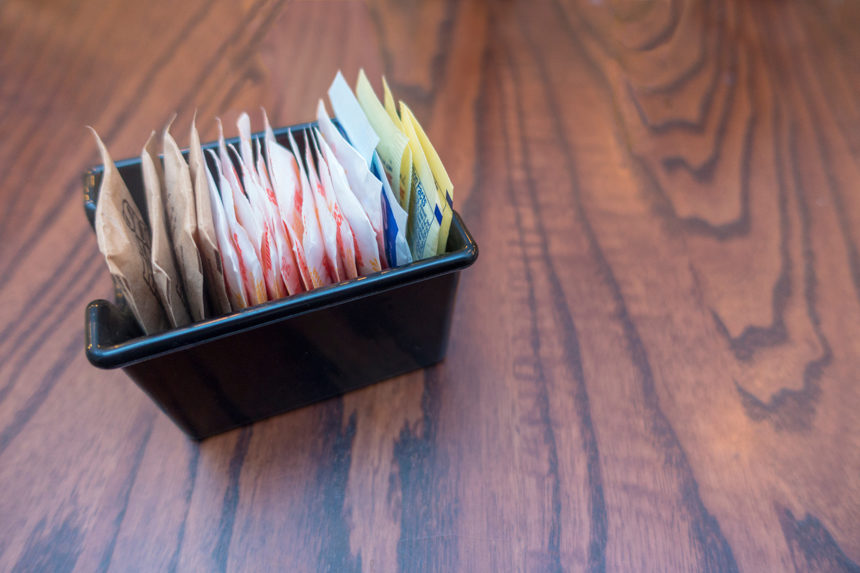“Your Health Checkup” is our online column by Dr. Douglas Zipes, an internationally acclaimed cardiologist, professor, author, inventor, and authority on pacing and electrophysiology. Dr. Zipes is also a contributor to The Saturday Evening Post print magazine. Subscribe to receive thoughtful articles, new fiction, health and wellness advice, and gems from our archive.
Order Dr. Zipes’ books, Ari’s Spoon, a new novel, as well as Bear’s Promise and Damn the Naysayers, A Doctor’s Memoir. Check out his website at dougzipes.com.
Considering the potential harm found in some foods and drinks, nutritionists for years have manipulated what we swallow to try and render foodstuffs safer; but it didn’t always work. For example, margarine to replace butter was assumed, without good evidence, to reduce the risks of heart attacks because margarine contained less saturated fat. But the concept failed to consider the cardiovascular risks of trans fats found in margarine.
Joan Dye Gussow summarized the dilemma with wry humor when she said, “As for butter versus margarine, I trust cows more than chemists.”
We are learning that artificial sweeteners — synthetic sugar substitutes — may fit the same profile of good intentions gone wrong.
I drink 3-4 cups of coffee daily — no cream but I do add a sweetener. Several years ago, I switched to stevia, a plant-based sugar substitute. A recent study supports my decision to avoid some of the popular artificial sweeteners because of the risk of cardiovascular disease.
The dietary intake and artificial sweetener consumption of more than 100,000 participants (mean age 42 years, 80 percent female) was tabulated by a food questionnaire that listed everything participants ate or drank for multiple 24-hour intervals over a nine-year span. This French, web-based cohort, called NutriNet-Santé, found that total artificial sweetener intake was associated with an increased risk of cardiovascular disease, more commonly stroke than heart attack.
Specifically, aspartame (Equal), absorbed and metabolized into a variety of compounds, one of which is formaldehyde, was associated with the greatest relative risk of stroke (17 precent increase) while sucralose (Splenda) was associated with the greatest relative risk of coronary heart disease (40 percent increase).
Several points from this study are important to highlight.
First, participants were mostly young and female, a group normally considered at lower risk for heart attacks and strokes. So, it is possible that the risks found in this study might be even greater in an older population of men, or in those with co-morbidities such as diabetes.
Second, it is important to remember that sweetener substitutes are included in thousands of processed foods and drinks that advertise low or no calories and are not just found in a paper envelop to add to coffee, tea, and foods.
Third, we need further studies on stevia to assess its cardiovascular effects and validate its replacement as a sweetener.
Finally, the French study showed an association, not a definite causal relationship, and may be influenced by confounding variables. For example, those who use sweetener substitutes may also be impacted by an unhealthy lifestyle, such as reduced exercise, elevated cholesterol, high blood pressure, and so forth.
Nevertheless, the authors’ conclusion that the study suggests a potential direct association between higher artificial sweetener ingestion and increased cardiovascular disease risk should be an important consideration the next time you sweeten your coffee or buy a carbonated drink. It is a modifiable risk factor that potentially can improve your cardiovascular health.
Become a Saturday Evening Post member and enjoy unlimited access. Subscribe now




Comments
I have used Monk Fruit, Stevia and Erythritol for sweetening. Are there any studies on Monk Fruit and erythritol available? I prefer Monk Fruit, a more natural sweet taste for me.
I use Stevia. I understand it is made from a plant. In everything I make, including my “world=famous” I use Stevia to sweeten and it does a very good job. I have personally found that the more I stay away from sugar, the better I feel.
I always now look for real cane sugar in products. I try & stay away from HFCS.
I’ve long heard about how bad the pink saccharine, blue aspartame and yellow sucralose are. From what I know the green packed stevia is the best current sugar alternative, and have used it in tea. I like the brown packed sugar in the raw to sprinkle for de-caf coffee with a spoonful of Coffee Mate or International Delight’s French Vanilla liquid creamer.
Sometimes I just don’t want to look at the label. Life’s such a downer now Dr. Zipes, ya gotta treat yourself to somethin’ that just tastes good. Eatin’ good in the neighborhood so to speak. No, I’ve been much better at staying away from soft drinks with high fructose corn syrup. Still there’s nothing quite like a cold Vanilla Coke here and there. And some Mexican Coke’s occasionally in the bottle with real sugar es muy bueno, si?